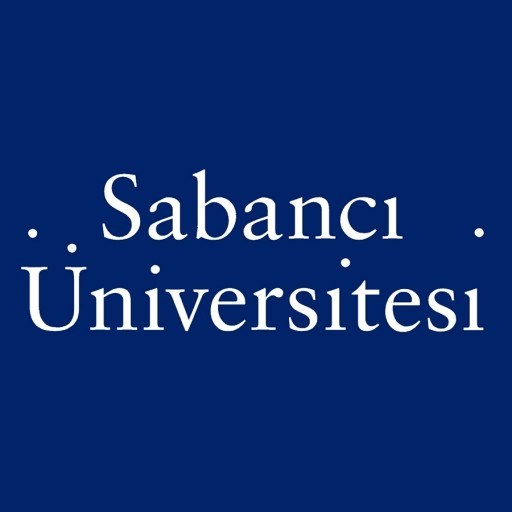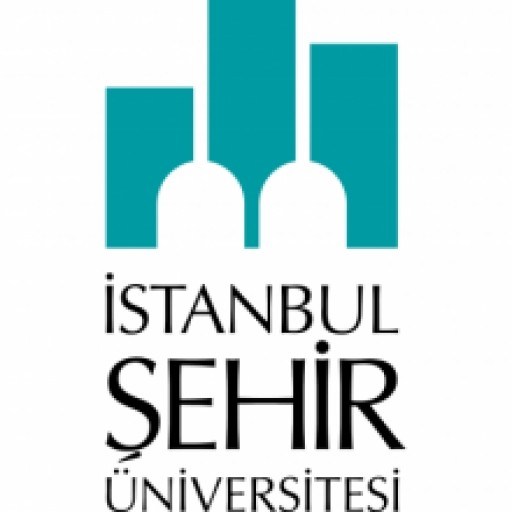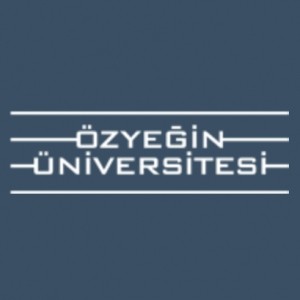Photos of university / #bilkentuniv
Electrical and Electronics Engineering at Bilkent University offers a comprehensive and rigorous curriculum designed to prepare students for innovative careers in the rapidly evolving fields of electrical and electronic systems. The program emphasizes a solid foundation in fundamental engineering principles, complemented by hands-on laboratory experiences, cutting-edge research, and opportunities for specialization. Students are introduced to core topics such as circuit analysis, digital systems, communication systems, signal processing, control systems, electromagnetics, power systems, and microelectronics. The curriculum integrates modern computational tools and programming languages to equip graduates with the skills necessary for designing, analyzing, and implementing complex electrical and electronic solutions.
Throughout the program, students have access to state-of-the-art laboratories and research facilities, enabling practical application of theoretical knowledge. The university encourages active participation in projects, internships, and industry collaborations, fostering real-world experience and professional development. The academic staff are internationally recognized researchers committed to mentoring students and pushing the boundaries of technological innovation. The program emphasizes critical thinking, problem-solving, and teamwork, essential qualities for successful careers in academia, industry, and entrepreneurship.
In addition to technical expertise, the program promotes awareness of ethical, social, and environmental issues related to engineering. Students are encouraged to develop innovative solutions addressing contemporary challenges such as energy efficiency, sustainable development, and telecommunications. Bilkent University also supports lifelong learning and continuous professional development, preparing graduates for the dynamic landscape of technology-driven careers. Graduates of the Electrical and Electronics Engineering program at Bilkent are well-prepared to contribute significantly to advancements in areas like renewable energy, automation, robotics, wireless communications, and embedded systems, making a meaningful impact on society and the global economy.
Detailed Course Facts
Application deadline 2014-2015 Academic Year Spring Semester, beginning on 2 February 2015, will be open between 15 October - 15 December 2014; 2015-2016 Academic Year Fall Semester, beginning in mid-September 2015, will be open between 15 October 2014 - 16 July 2015 Tuition fee- USD 13950 Year (International)
The annual tuition for international students beginning their program in September 2014 is 13,950 US Dollars (includes 8% VAT). Tuition fees are collected in two equal installments at the beginning of the Fall and Spring semesters. Tuition fees are payable in US Dollars only.
Start date February,September 2015 Duration full-time 48 months Languages Take an IELTS test- English
Course Content
First Year
Autumn Semester
- Algorithms and Programming I
- English and Composition I
- Orientation
- Calculus I
- General Physics I
- Turkish I
Spring Semester
- Algorithms and Programming II
- English and Composition II
- Calculus II
- General Physics II
- Turkish II
Second Year
Autumn Semester
- Introduction to Digital Circuit Design
- Analog Electronics
- Collegiate Activities Program I
- History of Turkey
- Cultures Civilizations and Ideas I
- Engineering Mathematics I
Spring Semester
- Circuit Theory
- Microprocessors
- Collegiate Activities Program II
- Cultures Civilizations and Ideas II
- Engineering Mathematics II
- Unrestricted Elective
Third Year
Autumn Semester
- Summer Training I
- Electronic Circuit Design
- Signals and Systems
- Engineering Electromagnetics
- Humanities or Social Science Elective
- Mathematics / Science Elective
Spring Semester
- Feedback Control Systems
- Technical Report Writing and Presentation
- Probability and Statistics
- Basic Engineering Elective
- EEE Elective
- Humanities or Social Science Elective
Fourth Year
Autumn Semester
- Summer Training II
- Science Technology and Society
- EEE Elective
- EEE Restricted Elective
- Mathematics / Science Elective
- Project Elective-I
Spring Semester
- Technology Society and Professional Development Seminar
- EEE Expanded Electives (2)
- EEE Restricted Elective
- Project Elective-II
- Unrestricted Elective
PROJECT ELECTIVE-I
Course Name
- Electrical and Electronics Engineering Design I
- Industrial Design Project I
- Innovative Product Design and Development I
PROJECT ELECTIVE-II
Course Name
- Industrial Design Project II
- Electrical and Electronics Engineering Design II
- Innovative Product Design and Development II
EEE ELECTIVE
Course Name
- Computer Networks
- Computer Architecture
- Digital Electronics
- Applied Electromagnetics
- Telecommunication Electronics
- Microwave Electronics
- Introduction to CMOS VLSI Design
- Analog CMOS Integrated Circuits
- Principles of Electronic Devices
- Power Electronics
- Digital Signal Processing
- Optics
- Photonics
- Telecommunications I
- Telecommunications II
- Wireless Networking Technologies and Applications
- Optimal Control Theory and its Applications
- Nonlinear Systems
- Neural Networks
- Robust Feedback Theory
- Sampled Data Systems
- Control and Optimization of Stochastic Systems
- Introduction to Robotics
- Microwave Engineering
- Antenna Engineering
- Medical Imaging
- Foundations of Magnetic Resonance Imaging
- Advanced Optoelectronics: Innovative Design
- Biomedical Signals and Instrumentation
- Computational Neuroscience
- Senior Project
- Digital Signal Processing Laboratory
Students may take at most two EEE 500 or higher coded courses.
English Language Requirements
IELTS band : 6.5 TOEFL iBT® test : 87
To study at this university, you have to speak English. We advice you to
take an IELTS test.Requirements
International students, who had graduated or are expecting to graduate from a High School equivalent to Turkish High Schools in Turkey, can apply to Bilkent University. All International applicants who are applying for full-time undergraduate degree programs are required to fill out the following application form at:
Online Application Form
The applications for:
- 2014-2015 Academic Year Spring Semester, beginning on 2 February 2015, will be open between 15 October - 15 December 2014
- 2015-2016 Academic Year Fall Semester, beginning in mid-September 2015, will be open between 15 October 2014 - 16 July 2015
How to complete your online application:
Step 1: Obtain a login ID and password
Step 2: Fill out the personal information part and upload the personal information page of your passport.
Step 3: Fill out the family Information part. All students who would like to be considered for partial tuition wavier recipients are recommended to fill out this part.
Step 4:REQUIRED DOCUMENTS
Bilkent accepts the photocopies of exams/diplomas and certificates listed below for application. In the absence of national or international exams, high school graduation score can be evaluated for admission. Scanned copies of Turkish or English translation of the high school diploma and official transcript along with the explanation of the high schools grading system should be submitted for application.
- - In the SAT I, a total score of at least 1000 out of 1600 (in the combined Critical Reading and Math Reasoning tests), depending on the department to which application is made.
- - In the General Certificate Education (GCE), including Cambridge International A Level, at least three A level scores, one of which is received in the particular subject area of the program applied for.
- - In the ACT examination, a minimum score of 24 in Mathematics, Science and Composite.
- - In the TQDK examination, a minimum score of 450 out of 700 in "Group II-III-IV" and a minimum score of 550 out of 700 in "Group I".
- - In the Baccalaureate Libanais examinations given in Lebanon, a diploma score of at least 14 in the Scientific Stream.
- - In the Tawjih examinations given in Jordan and Palestine, a minimum average of 85 points in all courses in the Scientific Stream.
- - In the West African Examinations Council - (International) Senior School Certificate examination (WAEC - SSCE), a maximum score of 2 in each of the six subjects, and a maximum total score of 9 from the same six subjects.
- - An International Baccalaureate diploma with a diploma score of at least 28 or higher up to 32 depending on the department to which application is made.
- - A French Baccalaureate diploma with a diploma score of at least 12.
- - ABITUR with a score of at least 4 and a minimum score of 5 out of 15 in the subjects related to the program applied for.
- - In the Libyan Al Shahada Al Thanawiya examination, a score of at least 195 in the Scientific Stream for Engineering and Science programs and at least 185 in the Social Sciences / Art Stream for other programs.
- - In the Gao Kao examination of the People's Republic of China, a score of at least 540 (It may vary according to the department applied for).
- - In Diploma Debirestan / Pisdanesgahi administered in Iran, with a score of at least 16 out of 20.
- - In the International University Test examination administered in Kazakhstan, a minimum score of 85 out of 100.
- - Gold, silver or bronze medals in the International Science Olympiads (*) recognized by TUBITAK (The Scientific and Technical Research Council of Turkey):
* (IOI) The International Olympiad in Informatics
(IBO) The International Biology Olympiad
(IPhO) The International Physics Olympiad
(IChO) The International Chemistry Olympiad
(IMO) The International Mathematical Olympiad
(JBMO) Junior Balkan Mathematical Olympiad
(BMO) Balkan Mathematical Olympiad
(BOI) Balkan Olympiad in Informatics
Step 5: ENGLISH PROFICIENCY
As Bilkent is an English medium university, students are required to meet the language requirement to be able to pursue their studies in their departments. The language requirement can be met through the submission of an exam result meeting the minimum requirements in any of the following exams as outlined below:
- TOEFL iBT, a score of at least 87
- IELTS Academic, a score of at least 6.5 with a minimum of 5.5 scored in every section
- CAE, a grade of at least "C"
- FCE, a grade of at least "B"
External exam results are valid for two years. When students submit results for any of the exams mentioned above, Bilkent University School of English Language reserves the right to investigate these exam results for reliability purposes, the right to give an exam to students to check the validity of their exam results, and the right to not accept exam results that are considered to be suspicious.
If students cannot submit an exam result which meets the minimum requirements, they can take the COPE exam administered by Bilkent University after registration. Students, who cannot meet the minimum pass score in the COPE exam, will have to attend classes in the English Language Preparatory Program which is a one to two year program where they will receive 25-30 hours of classroom input every week.
PLEASE NOTE: The exam results must be sent to the university directly by the related institution. The exam results that are not sent to the university by the related institution will not be accepted.
- TOEFL should be sent directly from ETS to Bilkent University - CODE: 0620.
- IELTS should be sent directly from British Council to Bilkent University.
Step 6: List and rank your selected programs up to 5 choices. Please note that students who choose Graphic Design; Fine Arts and Music must take an aptitude test administered by the related faculties in August.
Step 7: Please write a 250-word statement of purpose describing your academic goals and reasons to study at Bilkent.
Work Experience
No work experience is required.
Related Scholarships*
- Academic Excellence Scholarship
"The Academic Excellence Scholarship can provide up to a 50 % reduction in tuition per semester. These scholarships will be renewed if the student maintains superior academic performance during each semester of their 3-year Bachelor programme. The scholarship will be directly applied to the student’s tuition fees."
- Alumni Study Travel Fund
Scholarships for students who are already attending the University of Reading.
- Amsterdam Merit Scholarships
The University of Amsterdam aims to attract the world’s brightest students to its international classrooms. Outstanding students from outside the European Economic Area can apply for an Amsterdam Merit Scholarship.
* The scholarships shown on this page are suggestions first and foremost. They could be offered by other organisations than Bilkent University.
Funding
Scholarships for International StudentsProspective students who apply for financial assistance are evaluated according to their high school grades, their national and/or international exam scores, and other relevant academic criteria.
Qualified applicants are offered partial or full tuition waiver scholarships. Tuition waiver scholarships are awarded at five levels, ranging from 20% to 100% in increments of 20%. Accommodation scholarships are also available for a limited number of top students who are on full tuition waiver scholarship.
Students can benefit from scholarships for maximum of 2 years in the English Preparatory Program and for a maximum of 5 years in 4-year undergraduate programs.
Students on scholarship are required to take at least the minimum course load* specified for their department each semester (excluding any withdrawn courses**, GE100, GE251 and non-credit courses) and to maintain a minimum annual GPA of 2.00/4.00. (The annual GPA is calculated as a weighted average of Fall and Spring semester grades; courses taken in the optional Summer School are also included in calculation.) English Preparatory Program students are required to qualify to take the ECA or COPE exam at the end of each course or pass COPE by the end of the academic year. Scholarships of students who fail to meet these conditions will be decreased one level and cannot be restored even if the students improve their performance. If there are no Fall or Spring semester courses within the annual GPA, students with less than 2.00 are given a warning; if these students fail to meet the required conditions at the end of the following year, their scholarships will be decreased by two levels.
Students on accommodation scholarship are required to maintain a minimum annual GPA of 2. 50/4.00. Students who fail to meet this condition will loose their accommodation scholarship.
* The minimum course load depends on the department. This information can be found in SRS ( https://stars.bilkent.edu.tr/srs/ ) under "Information Card" and "lower limit".
** The number of withdraws is irrelevant, provided that students finish the semester with the minimum course load. If a student falls one course below the minimum course load by withdrawing a course, this is also possible provided that this situation occurs only once over the fall and spring semesters combined.
Merit Scholarship
At the end of each academic year, international students who have taken at least a minimum curriculum course load (excluding any additional courses, withdrawn courses, GE 100-250-251, non-credit courses and repeated courses in Spring, already taken in Fall semester) and attained an annual grade point average of 3.30 or above, as well as being in the top 5% of all the non-scholarship students in their program, may become eligible to receive a merit scholarship for the following academic year on top of any partial tuition waiver scholarship they may already have.
The Electrical and Electronics Engineering program at Bilkent University is a rigorous undergraduate curriculum designed to equip students with the fundamental principles and practical skills necessary for a successful career in the rapidly evolving field of electrical engineering. The program offers a comprehensive overview of core areas such as circuit design, signal processing, electromagnetics, control systems, power systems, microprocessors, and communication systems. Students are encouraged to develop strong analytical and problem-solving skills through a combination of theoretical coursework, laboratory work, and project-based learning.
The curriculum is structured to provide a solid foundation in mathematics, physics, and computer science, enabling students to understand and tackle complex engineering problems. Advanced courses delve into specialized topics, including digital and analog electronics, renewable energy systems, embedded systems, and robotics. The program also emphasizes the importance of contemporary issues such as sustainable energy solutions, smart grid technologies, and the integration of renewable resources into existing power grids.
Bilkent University supports a hands-on learning environment through state-of-the-art laboratories and research centers that foster innovation and practical experience. Students have opportunities to participate in industry internships, collaborative projects, and research programs, allowing them to gain real-world insights and build professional networks. The program is designed to prepare graduates for diverse career paths in industry, research, and development, or for further academic pursuits at the graduate level.
Many courses are taught by distinguished faculty members who are active researchers in their fields, ensuring that curriculum content stays current with technological advances. The university promotes an interdisciplinary approach, encouraging students to collaborate across engineering disciplines and other fields such as computer science and business. Graduates of Bilkent’s Electrical and Electronics Engineering program are well-equipped to contribute to technological innovations and address global challenges in energy, communications, and automation.
Furthermore, the program emphasizes developing ethical awareness and professional responsibility, preparing students to act ethically and sustainably in their future careers. Bilkent University’s strong industry ties and collaborations provide valuable internship opportunities and facilitate the transition from academic studies to professional practice. Overall, the program aims to produce competent, innovative, and socially responsible electrical and electronics engineers who can contribute to the advancement of technology and society.




